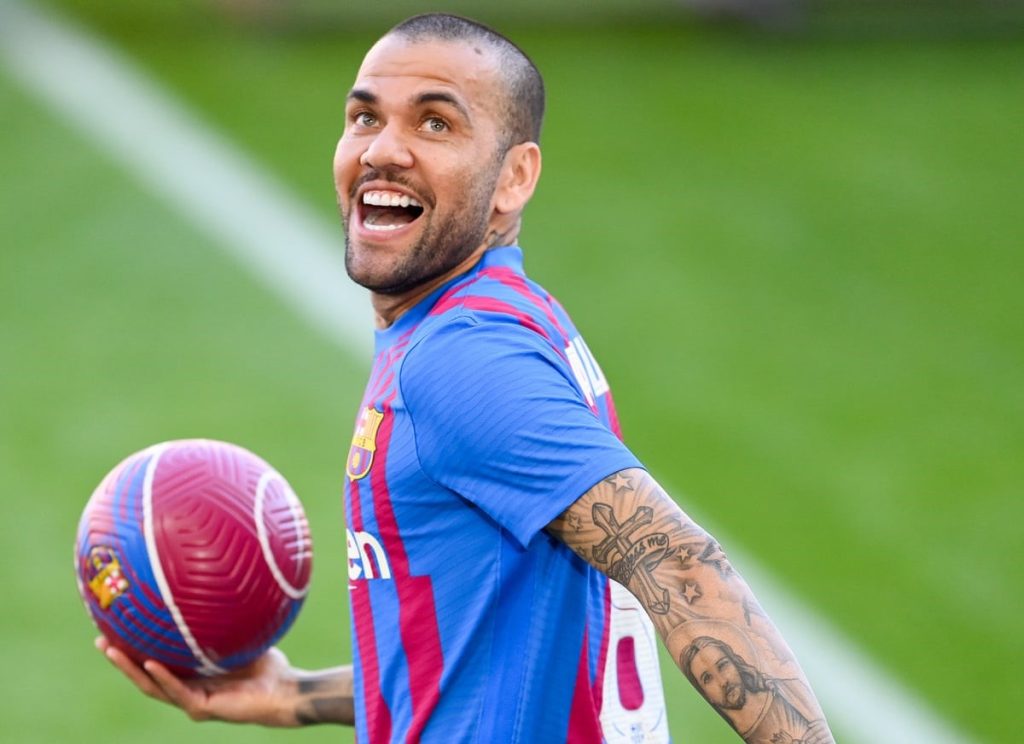Paragraph 1: The Case and Initial Conviction
Dani Alves, a prominent figure in the world of football, found himself entangled in a legal battle following accusations of rape by a young woman. The alleged incident occurred on December 31, 2022, in the VIP bathroom of a Barcelona nightclub. In February 2023, a Barcelona court found Alves guilty of the charges and sentenced him to four and a half years in prison. The verdict marked a significant moment in the ongoing conversation surrounding sexual assault and accountability, particularly for high-profile individuals.
Paragraph 2: The Appeal and Its Aftermath
However, the legal saga took a dramatic turn in March 2024 when a Barcelona appeals court overturned the lower court’s ruling. The appeals court cited inconsistencies and contradictions in the trial, along with insufficient evidence to definitively prove Alves’ guilt. This decision ignited public outrage, particularly in Spain, where feminist groups and government officials criticized the overturning of the conviction. The complainant’s lawyer, Ester Garcia, promptly filed an appeal against the overturned verdict, signifying the continuation of the legal battle.
Paragraph 3: Public Reaction and Government Response
The overturning of Alves’ conviction sparked public demonstrations and drew criticism from various sectors of Spanish society. Feminist groups organized protests in Barcelona, expressing their discontent with the appeals court’s decision. Members of Spain’s leftist government also voiced their concerns, characterizing the ruling as a "step backward" in the fight against sexual assault. Deputy Prime Minister Maria Jesus Montero lamented the continued questioning of a rape victim’s testimony, highlighting the challenges survivors face in the pursuit of justice.
Paragraph 4: Alves’ Release and Career Background
Following his initial arrest in January 2023, Alves remained in custody until March 2024. He was subsequently released on bail, set at one million euros ($1.1 million), pending the outcome of his appeal. Prior to his legal troubles, Alves enjoyed a highly successful football career. He played a key role in a dominant Barcelona team, winning three Champions League titles and six La Liga titles. His career extended beyond Barcelona, with league titles at Juventus and Paris Saint-Germain, along with 126 caps for the Brazilian national team.
Paragraph 5: The Appeal Process and Legal Strategy
The complainant’s legal team submitted their appeal on the final day permitted, indicating a carefully considered strategy. Lawyer Ester Garcia refrained from disclosing the specific grounds for the appeal, citing strategic reasons. This approach suggests a deliberate effort to maintain a strong legal position and avoid prematurely revealing their arguments to the opposing side. The public prosecutor’s office in Catalonia also announced its intention to appeal the overturned conviction, further adding to the complexity of the legal proceedings.
Paragraph 6: Wider Implications and Ongoing Debate
The Dani Alves case has become a focal point in the discussion surrounding sexual assault allegations, particularly those involving individuals with significant public profiles. The initial conviction, its subsequent overturning, and the ensuing public reaction reflect the complexities and sensitivities inherent in such cases. The ongoing legal battle serves as a reminder of the challenges faced by both accusers and the accused in navigating the judicial system. The case also highlights the broader societal debate about how to effectively address sexual assault and ensure justice for survivors while upholding the principles of due process.














